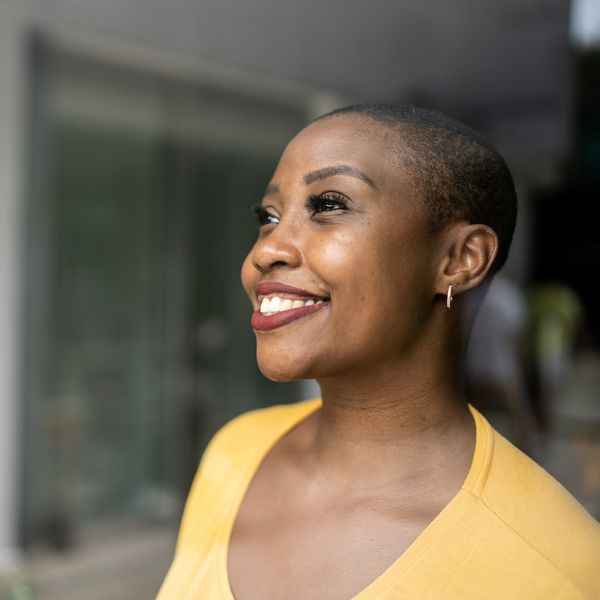What happens when you get home after a long day's (or night's) work? Do you flop into bed exhausted? Do you half-eat a semi-healthy meal, watch a little Real Housewives, and fall asleep on the couch?
There is a lot of emphasis placed on how well we start our day but how we end it is just as critical. Consistently only getting two hours of rest is not healthy. Neither is going to bed anxious or angry. The quality of our sleep speaks not only to how well we rise the next day, but the holistic quality of our lives. As women, our risks for certain illnesses are already greater and for women of color, the odds increase. Along with eating well and exercising, getting a good night's rest has been proven to improve clarity of focus, minimize the risk of heart disease and stroke, and improve immune system defenses.
We were able to catch up with 7 incredible women, killing it in their respective fields, to find out the rituals/routines that help them wind down and how they end their days well:
Christa Gambrell, PhD, LPC

Licensed Professional Counselor, Founder/CEO of Gambrell Wellness
"Once or twice a week, I take an Epsom salt bath with essential oils. It's a good way for the body to absorb magnesium, a nutrient known to produce a calming effect. I also started propping my feet on a wedge pillow, placing a heating pad on my abdomen, and practicing diaphragmatic breathing. A final seasonal favorite nighttime ritual is to turn out all the lights except the Christmas tree and just take in the beauty. All of these work together to promote a sense of safety and security so I can sleep in peace."
Follow her on Instagram @drcristagambrell.
Davia Roberts
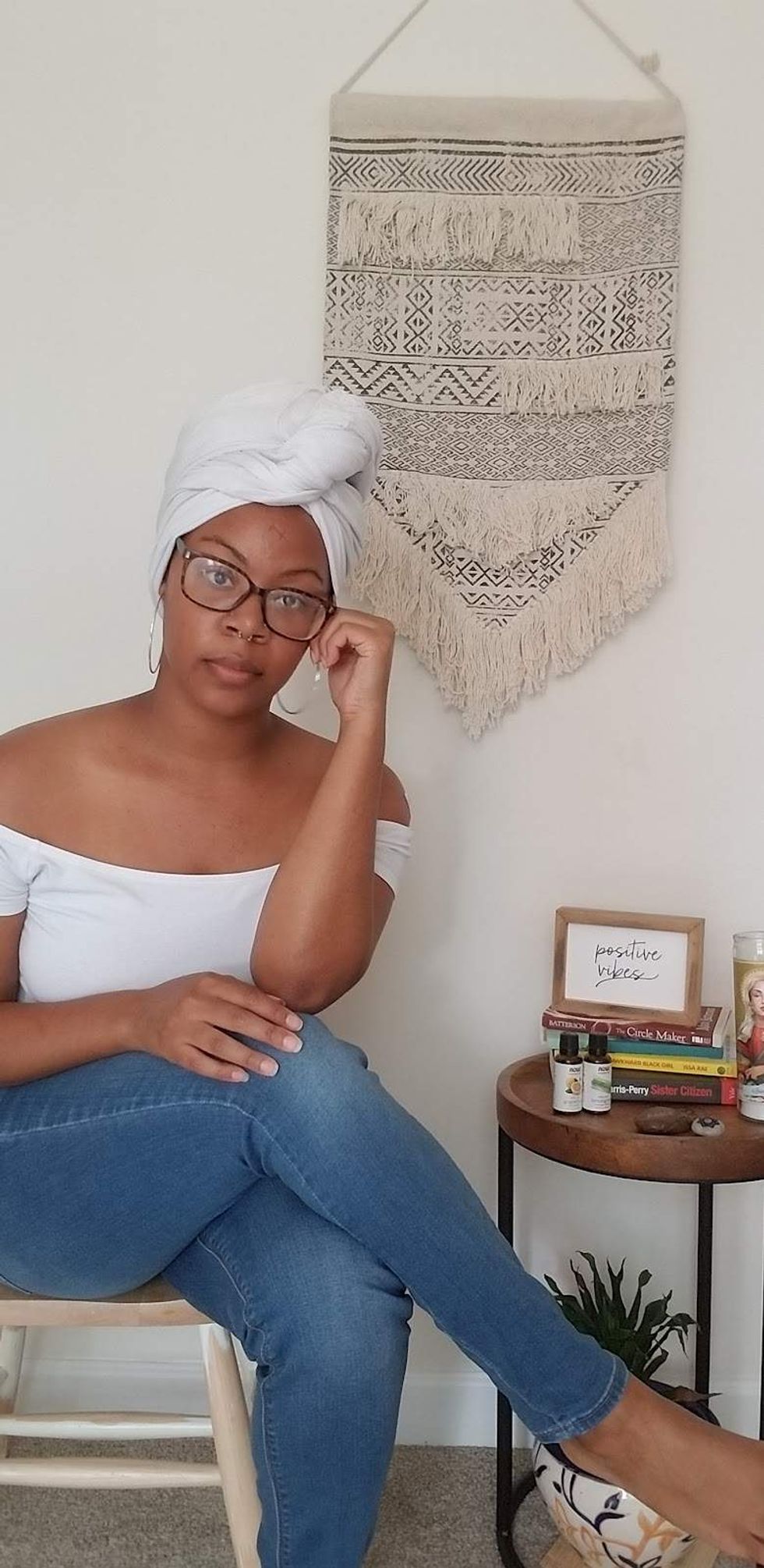
Founder, Redefine Enough
"My night routine varies but one thing that does not change is intentionality. I honor my time to recharge by setting boundaries and genuinely preparing my mind to ease into rest. At 9pm, my phone switches to Do Not Disturb and I detach myself from social media. When distractions are silenced, I can focus on reading, journaling, breathing exercises, or relaxing yoga poses. Once I begin diffusing lavender oil, it's not long before I've fallen asleep.
"To others, my night routines may seem dramatic. However, these practices soothe me after busy days and help me stay focused on what matters. My life is not merely to-do lists and deadlines and taking the time to slow down each night reminds me of that truth. I am my best self when I create balance. The constant hustle doesn't serve me."
Follow her on Instagram @redefineenough and @justdavia.
Ashlee Wisdom

Founder, HealthInHerHUE
"I end my day well by setting aside time to unplug, unwind, and recenter. I usually do this by setting my alarm for the next day, putting my phone on Do Not Disturb, and turning it face down so the notifications don't distract me. I also have a routine of lighting a scented candle in my bedroom as I prepare for bed. (I usually light it before getting into the shower so when I get back to my room, the aroma relaxes me). I also spend some time in prayer and meditation. I reflect on the day – the good, the not so good, the things I'm unsure about – and I talk to God candidly about them. After I pray, I usually do one of three things: read a few chapters of whatever book I'm currently reading, watch a sermon on YouTube (I'm an unofficial member of Elevation Church, Transformation Church and The Potter's House LA/Denver), or watch a TED Talk on a topic of interest. Doing these things helps me silence a lot of the excess noise in my head, and it helps me pour back into myself spiritually and intellectually. My days end well with a nice combination of self-care, self-reflection, and self-investment."
Follow her on Instagram @healthinherhue.
Jayde Ware

Memory Care Director
"I completely unplug an hour before I go to bed, so I turn off the TV and put my phone down. I find completely unplugging gives me a clear headspace to actually wind down from my day. I then do 20 minutes of journaling where I just write out any lingering thoughts/feelings from the day. I also write a list of 3 really good things that happened to me that day and make a list of 5 things I'm thankful for. I find ending my day in a state of pure gratitude does wonders for my mood.
"Then I write out my goals and intentions for the next day. Waking up with a plan already set makes it easier for me to follow through and be productive in the morning. I end my night routine by taking 10 minutes to stretch and then praying. It's always important for me to end every day with a long list conversation with God."
Follow her on Instagram @callherjayde.
Latisha Carr
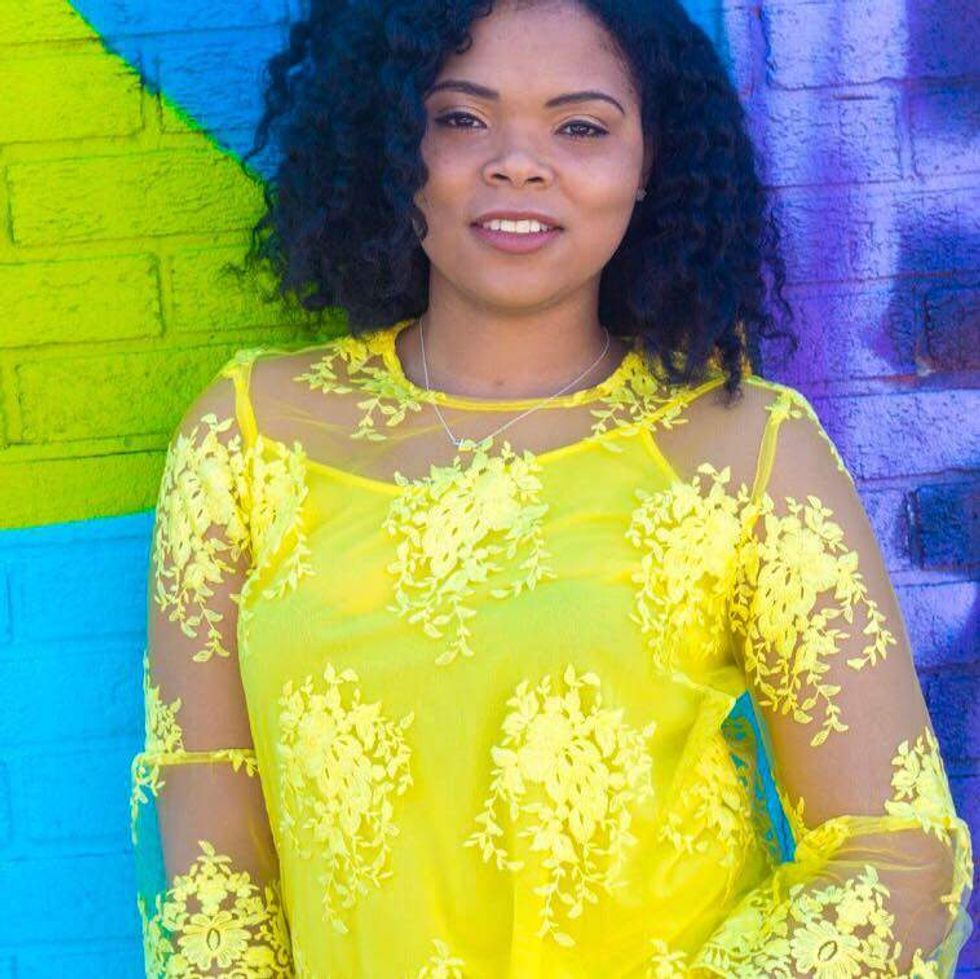
Self-Care Strategist, Latisha Carr Global
"Every night for the past few years, I have been writing in my journal in a very specific way that helps me to unwind. I first clear my mind by venting about all that has happened in my day, followed by writing out my wins for the day (I make myself find at least one even on the worst days). After that, I write things out that I am trusting God for, things that I am thankful for, and I end with an affirmation for the night. This helps me to clear my mind from any worries or doubts, but more importantly puts me in a place of gratitude and centered on God's Promise every night."
Follow her on Instagram @latisha.carr.
Erin Malone Turner
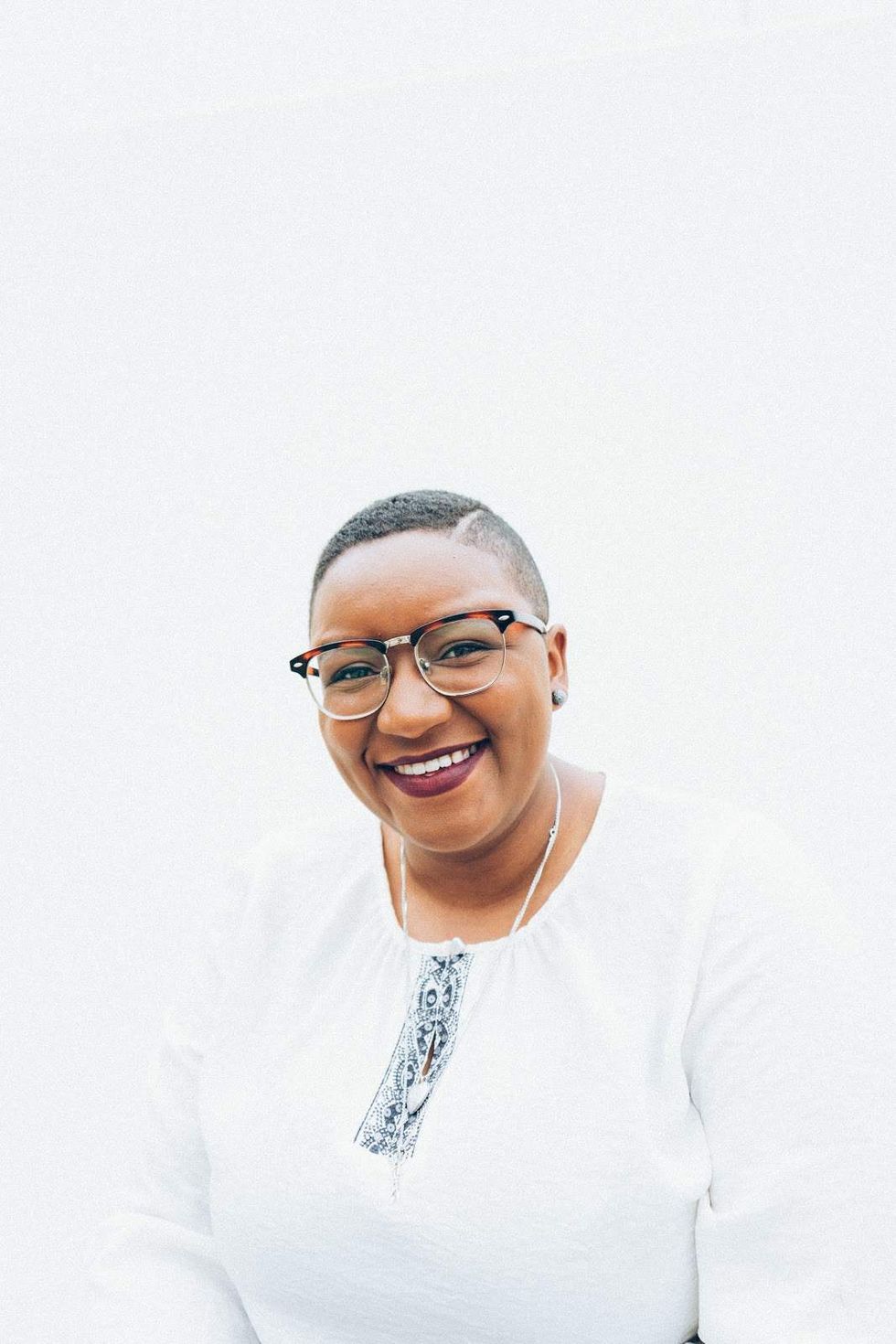
Writer & Pre-K Teacher
"Before bed, I typically do my nightly skincare routine, briefly read/edit something I've written, and spend the rest of the evening reading something written by someone else – usually a book or a play. I turn off my main bedroom lights and use my string lights until the last minute. Sometimes, I drink tea and tidy up my room a bit. Lastly, I pray and try to ready myself for the following day."
Follow her on Instagram @justphonehome.
Yetti Ajayi-Obe
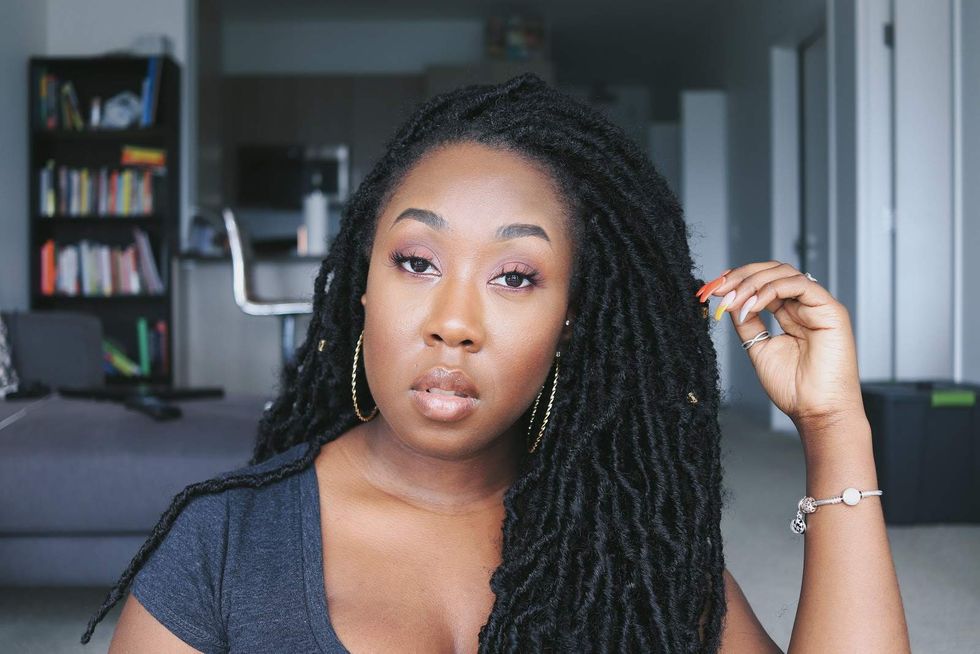
Mental Health Awareness Blogger at Yetti Says & Entrepreneur
"The end of my day consists of me going through the typical motions: doing my skincare routine and packing up what I'm going to need for the next morning. But what ends my day well is me making time for love and gratitude. I reflect on the blessings of the day and complete my gratitude list. Then right before bed, my partner and I do an exercise called 'I love you today' where we share today's reasons why we love each other. It's a little corny, but it's heartwarming and it makes it easier for me to start the next day with intentionality and a meditation."
Follow her on Instagram @yettisays.
Related Stories:
7 Things Successful Women Do Differently On The Weekend – Read More
3 Tips To Get Out Of Your Own Way And Succeed – Read More
7 Monday Morning Habits For Succesful Work Weeks – Read More
Featured image by Getty Images
- Creating a Morning Ritual Can Transform Your Days - xoNecole ›
- 7 Things Successful Women Do Differently On The Weekend ›
- Creating a Morning Ritual Can Transform Your Days - xoNecole: Women's Interest, Love, Wellness, Beauty ›
- 13 Super-Successful Women Reveal Their Morning Routines ... ›
- Six things successful women do : Evewoman - The Standard ›
- 7 Bedtime Habits of the Most Successful People | Inc.com ›
- 5 Things Successful Women Do on Sundays ›
- What successful people do before bed - Business Insider ›
- 10 Things Highly Successful People Do Before Going to Sleep | Inc ... ›
- Bedtime Routine Tips - Successful Women Advice ›
- These Are The Thing Successful Women Do Before Bed To Be ... ›
- The Nightly Routines of 19 Successful Women | MyDomaine ›
- 9 Things Successful Women Do Before 9AM | The Everygirl ›






